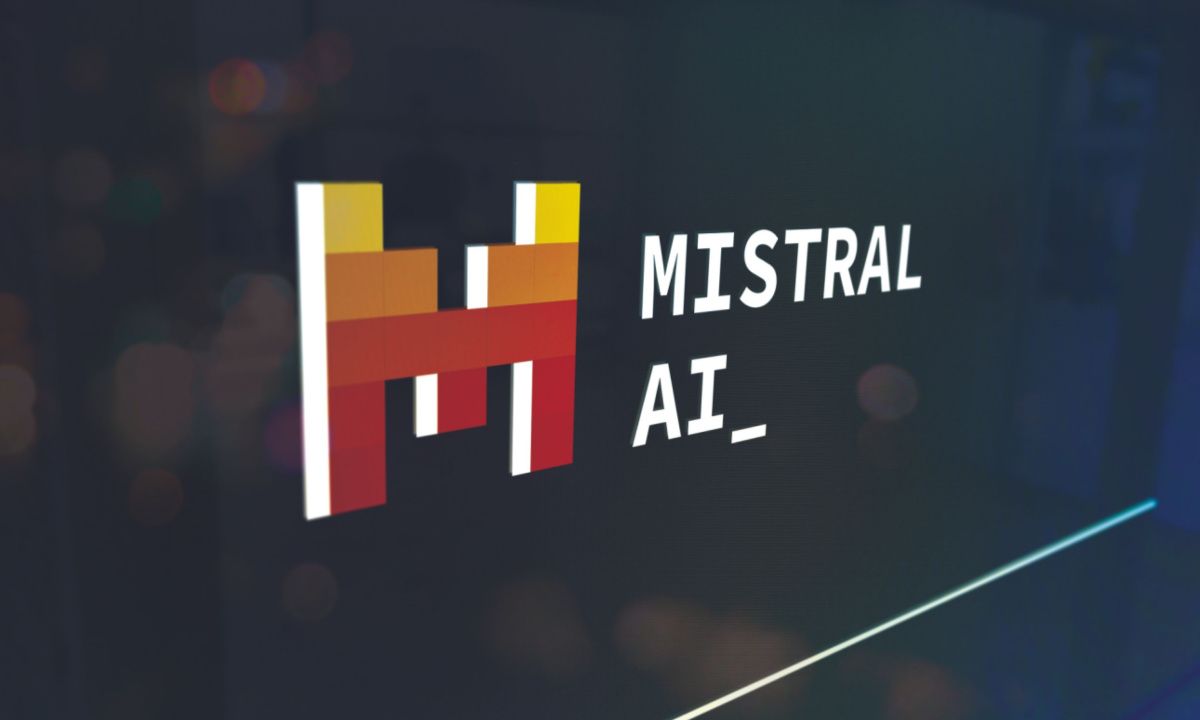An Introduction to Mistral AI

[ad_1]
Mistral AI is a new player in the field of artificial intelligence. It is promoted as a strong open-source competitor of ChatGPT (which is closed source).
In this article, we’ll explore what Mistral AI is, its use cases, and how it compares to ChatGPT. Plus, I’ll show you a simple code example to get you started with Mistral.ai.
What is Mistral AI?
At its core, Mistral AI is an advanced AI technology specializing in processing and generating human-like text.
Mistral offers several models for free use under a fully permissive license. These include the Mistral 7B transformer model, a smaller version proficient in English with an 8K content capacity, and the most advanced open model, Mistral 8x7B.
This model supports a 32K context capacity and is fluent in English, French, Italian, German, Spanish, and coding languages, as stated on the website.
Mistral AI can grasp the nuances of language, context, and even emotions. Imagine conversing with a friend who not only listens but understands the layers of meaning in your words — that’s Mistral AI for you.
What are the Use Cases of Mistral AI?
Mistral AI’s versatility is one of its strongest suits. Here’s a closer look at where it shines:
- Content creation: Imagine an assistant that never tires, writing eloquent articles, engaging blogs, or detailed reports on command. Mistral AI can be that determined writer, ready to help you meet your content needs with creativity and precision.
- Customer support: Mistral AI can automate and enhance interactions through intelligent chatbots. These AI-powered assistants can handle inquiries around the clock, ensuring that customer questions are answered promptly and accurately, improving satisfaction and engagement.
- Education: Mistral AI steps into the educational sphere by crafting personalized learning materials. Whether it’s creating customized quizzes or interactive learning modules, Mistral AI adapts to each student’s learning pace, making education more accessible and engaging.
- Translation: In our globalized world, communication across languages is crucial. Mistral AI can be useful in bridging communication gaps across different languages, making them invaluable tools in global business operations.
How Mistral AI Compares to ChatGPT
When stacking Mistral AI against ChatGPT, both emerge as formidable contenders in the AI arena. Here’s how they compare:
- Learning approach: Mistral AI might leverage newer, more sophisticated algorithms, potentially giving it an edge in understanding context and subtleties in text.
- Customization: One of Mistral AI’s standout features could be its higher degree of customization. This flexibility allows users to mould the AI more closely to their specific needs, be it for a niche blog or a specialized customer service bot.
- Context Window: ChatGPT has a limited context window (the amount of text the model can consider at one time), which has gradually increased with newer versions. Mistral models better context windows, helping the model process and generate text based on a larger user input.
How to Work with Mistral
While you can install Mistral on your local machine, in this example, we will look at a quick way to interact with the Mistral model using the API keys (and yes, you have to sign up to Mistral.ai to do that).
Once you have signed up, you can create an API key here.
This example prompts Mistral AI to compose a greeting for a science fiction fan club newsletter:
# Import the required libraries
from mistralai.client import MistralClient
from mistralai.models.chat_completion import ChatMessage
# Create an api client
client = MistralClient(api_key="YOUR_API_KEY")
# Create the prompts
messages = [
ChatMessage(role="user", content="What is the recipe for making a pizza?")
]
# Call the chat api
chat_response = client.chat(
model="mistral-large-latest",
messages=messages,
)
# Print the response
print(chat_response.choices[0].message.content)Ensure you replace YOUR_API_KEYwith your actual Mistral AI API key. This snippet illustrates how you can interact with Mistral AI to generate a response for a prompt with just a few lines of code.
Here is a sample response:
Sure, I'd be happy to help with that! Here's a simple recipe for a homemade pizza:
Ingredients:
1. Pizza Dough: You can buy pre-made dough or make your own.
2. Pizza Sauce: You can use store-bought pizza sauce, tomato sauce, or even make your own.
3. Cheese: Mozzarella is the most common, but you can experiment with other types like cheddar, gouda, or parmesan.
4. Toppings: This can be anything you like. Some popular choices are pepperoni, mushrooms, bell peppers, onions, olives, and tomatoes.
Steps:
1. Preheat your oven to its highest setting, usually around 475-500°F (245-260°C). If you have a pizza stone, place it in the oven while preheating.
2. Roll out your pizza dough on a floured surface to your desired thickness. If you like a thin crust, roll it out thinner, or leave it a bit thicker for a deep-dish style.
3. Once your dough is rolled out, place it on a pizza peel or an inverted baking sheet. If you don't have a pizza stone, you can also place the dough directly onto a greased and floured baking sheet.
4. Spread a thin layer of pizza sauce over the dough, leaving a small border for the crust.
5. Sprinkle your cheese evenly over the sauce.
6. Add your toppings.
7. Carefully transfer the pizza to the preheated oven (or onto the pizza stone if using) and bake for about 10-15 minutes, or until the crust is golden and the cheese is bubbly and slightly browned.
8. Remove the pizza from the oven and let it cool for a few minutes before slicing and serving.
Enjoy your homemade pizza! Remember, the best part about making your own pizza is that you can customize it to your liking.Conclusion
Mistral AI represents a new horizon in artificial intelligence. It offers a suite of applications from creative writing to bridging language divides. Whether compared with ChatGPT or evaluated on its own merits, Mistral AI stands as a testament to the ongoing evolution in AI technology.
Hope you enjoyed this article.Visit turingtalks.ai for weekly byte-sized AI tutorials.
[ad_2]
Source link
